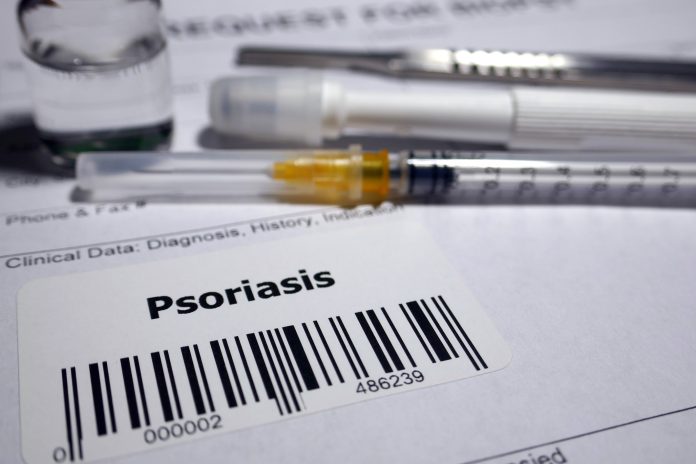Psoriasis is a chronic immune-mediated inflammatory disease that can impact sufferers’ mental and physical health. We discuss the complexity of the condition as well as the emergence of effective treatments with the national UK charity The Psoriasis Association
According to the National Institutes of Health (NIH), autoimmune and immune-mediated diseases are on the rise; these chronic conditions result from an abnormal response from the immune system, which can trigger chronic inflammation and serious damage to the body’s tissues and organs. Due to the complexity of these conditions and individuals’ unique genetic makeup and environmental exposures, it has been challenging to develop effective therapies.
Indeed, over 80 autoimmune diseases have been identified, but a cure has yet to be developed for any of them. One such condition is psoriasis, a chronic inflammatory disease thought to be caused by a mix of genetic and environmental factors, which can vary in severity. To learn more about the condition, including its impact on sufferers’ daily lives and the development of new therapies, we spoke to The Psoriasis Association, a national UK charity supporting those affected by psoriasis, which funds vital research and raises awareness.
What is psoriasis?
Psoriasis is an immune-mediated inflammatory disease characterised by raised, flaky skin patches known as plaques. These patches, which can be itchy or sore, result from an accelerated skin replacement process, taking only a few days instead of the usual 21-28 days. Psoriasis can also impact joints and is not contagious.
Who does psoriasis affect?
Psoriasis affects approximately 2% of the UK population, with the initial onset occurring in late teens to early adulthood and again between 50 and 60 years old. Severity varies, impacting men and women equally. Psoriasis results from accelerated skin cell replacement. While genetics and immune system issues are associated, the precise role of genetics in psoriasis development is not fully understood.
Types of psoriasis
There are various types of psoriasis, each with distinctive appearances. Plaque psoriasis is the most common, affecting around 80% of individuals. It presents as silvery plaques on elbows, knees, scalp and the lower back. Other types include guttate psoriasis, most common in children and teenagers. It can be triggered by a throat infection, with small, scaly patches that can cover all areas of the body. In sensitive areas like armpits and groin, psoriasis is often red and shiny with minimal scaling. Rare types include generalised pustular psoriasis (GPP), small blisters across the body, and erythrodermic psoriasis, which affects the skin alongside temperature and fluid level changes. Both types require urgent hospital care.
Psoriasis and comorbidities
Psoriasis is associated with comorbidities such as psoriatic arthritis, heart disease, and depression. Severe psoriasis shows links to diabetes, obesity, deep vein thrombosis, high cholesterol, and high blood pressure.
Diagnosis and treatment
To diagnose psoriasis, healthcare professionals, including dermatologists, examine the skin, scalp, and nails, considering general health and family history. Treatment varies based on type and severity and falls into four main categories.
Topical treatments, the primary choice, are directly applied to the skin and include moisturisers, vitamin D derivatives, coal tar preparations, topical steroids, and calcineurin inhibitors, often prescribed by GPs.
Phototherapy is another treatment that exposes the skin to controlled UVB or UVA light over eight to ten weeks, typically at a clinical unit, with sessions two to three times a week.
Systemic medications are taken orally, affecting the entire body and reserved for moderate to severe cases not responding to other treatments. Common medications include Methotrexate, Ciclosporin, Acitretin, Otezla, and Skilarence. Ongoing monitoring, blood tests, and blood pressure checks are necessary for systemic medications.
Psoriasis treatment has been transformed in the past decade with the widespread adoption of biologic injections, especially for severe cases unresponsive to other treatments. Biologics function by inhibiting the activity of specific immune cells (T cells) or the chemicals they release.
Impact on daily life
Psoriasis impacts each individual differently, influencing social relationships, education, work and emotional wellbeing. When diagnosed, patients may feel overwhelmed when navigating treatment pathways. It’s essential for healthcare professionals to recognise each patient has specific needs and educate them about their psoriasis and the treatments available. In doing so, individuals will feel more confident and proactively communicate with their healthcare professionals in a positive way.
Current issues in psoriasis research and care
- Skin of colour: In individuals with skin of colour, psoriasis may be underdiagnosed, presenting as purple or brown patches. Special considerations are needed for treatment, addressing dyspigmentation challenges and adjusting phototherapy dosages.
- Mood, wellbeing and depression: Psychosocial comorbidities associated with psoriasis, such as anxiety and depression, are recognised by patients, but only a minority seek help due to limited awareness and access. Early identification and various treatments, including cognitive behavioural therapy, meditation, and medications, can enhance outcomes for psychosocial illnesses, highlighting the need to recognise psoriasis as a complex condition with both psychological and biological factors.
- Notable developments: Psoriasis treatments are constantly evolving, and in some instances, discontinuation of medications can arise. This can hugely impact a patient when the medication has been successful in controlling symptoms. Fortunately, newer biologics such as Infliximab, Bimekizumab, Ixekizumab and Risankizumab, which work by targeting different chemical messengers, have delivered promising results.
In June 2023, NICE recommended the use of Sotyktu (Deucravacitinib) as a treatment for moderate-to-severe plaque psoriasis in certain adults in England and Wales. This first-in-class, small-molecule targets the TYK2 pathway and is taken as a once-daily oral tablet. The treatment offers a life-changing opportunity for those living with psoriasis.
NICE recommends Sotyktu for treating moderate to severe plaque psoriasis if:
- The Psoriasis Area and Severity Index (PASI) is ten or more, and the Dermatology Life Quality Index (DLQI) is over ten; and
- If the condition hasn’t responded to other systemic treatment or phototherapy, or these options are contraindicated or not tolerated.
In summary, psoriasis is a complex condition with varying impacts on individuals’ lives. Ongoing research and the introduction of innovative treatments showcase promising advancements in psoriasis management.
References
- Blackstone, B., Patel, R. and Bewley, A. (2022) ‘Assessing and improving psychological well-being in psoriasis: Considerations for the clinician’, Psoriasis: Targets and Therapy, Volume 12, pp. 25–33. doi:10.2147/ptt.s328447.
- Brogan, J. (2023) ‘BMS launches campaign to highlight impact of psoriasis on patient well-being’, PM Live, 10 August. Available at: https://www.pmlive.com/pharma_news/bms_launches_campaign_to_highlight_i mpact_of_psoriasis_on_patient_well-being_1496073. (Accessed: 27 November 2023).
- Ennals, E. (2023) ‘Thousands of people hit by aggressive psoriasis like model Cara Delevingne are given hope thanks to a new drug approved by the NHS’, Daily Mail, 1 July. Available at: https://www.dailymail.co.uk/health/article-12254123/Thousands-people-hit-psoriasis-like-model-Cara-Delevigne-given-ho pe-thanks-new-drug.html (Accessed: 27 November 2023).
- Kaufman, B.P., Alexis, A.F. Psoriasis in Skin of Color: Insights into the Epidemiology, Clinical Presentation, Genetics, Quality-of-Life Impact, and Treatment of Psoriasis in Non-White Racial/Ethnic Groups. Am J Clin Dermatol 19, 405–423 (2018). https://doi.org/10.1007/s40257-017-0332-7
- Klein, H.E. and Steinzor, P. (2023) ‘Dr Mona Shahriari Talks Unique Challenges in Treating Psoriasis in Patients With Skin of Color’, The American Journal of Managed Care, 4 November. Available at: https://www.ajmc.com/view/dr-mona-shahriari-talks-unique-challenges-in-treating-psoriasis-in-patients-with-skin-of-color (Accessed: 27 November 2023).
- NHS choices (2023). Psoriasis Causes. Available at: https://www.nhs.uk/conditions/psoriasis/causes/ (Accessed: 27 November 2023).
- The Psoriasis Association (2023) Sotyktu (deucravacitinib), Psoriasis Association. Available at: https://www.psoriasis-association.org.uk/news/sotyktu (Accessed: 27 November 2023).
- Walton, R. (2023) ‘Biologic drugs for psoriasis – are these new treatments any good?’, Cochrane UK, 24 August. Available at: https://www.evidentlycochrane.net/biologic-drugs-for-psoriasis-are-these-new-treatments-any-good (Accessed: 27 November 2023).
The Psoriasis Association
www.psoriasis-association.org.uk
Twitter
LinkedIn
Facebook








